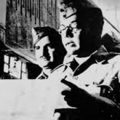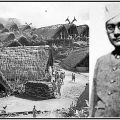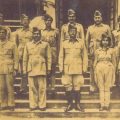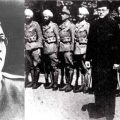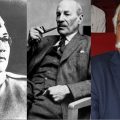“Because of Netaji We Aren’t Part of Pakistan”; Netaji’s Impact on Northeast
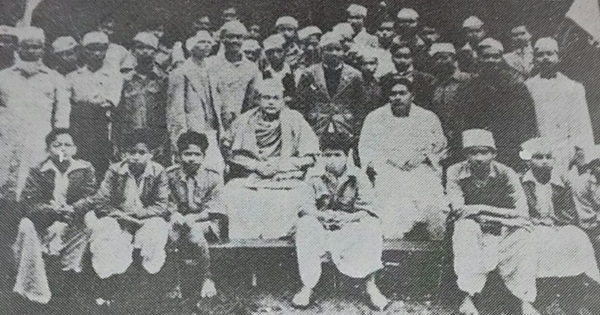
It all began a few years ago when one fine morning, I heard a well-wisher recall Netaji’s contribution to the freedom movement and the impact it had on the North Eastern part of the country. Those days, we had a large state of Assam, which included present day Nagaland, Meghalaya and also parts of Bangladesh. The gentleman even went on to state that but for Netaji, we would have been citizens of Pakistan. That set me thinking. A couple of reference book, a few visit here and there and an interview with Padmashri Ajay Dutta was all that I required to corroborate the Gentleman. Netaji was indeed in love with North East. But was North East grateful to Netaji….
It all started in 1937 when the country had a tryst with the General Elections. The elections in Assam saw the Congress gaining the majority. However they still had some task cut out for that final sip between the cup and the lips. For consequent to the partition of Bengal in 1905, administratively Assam was merged with Sylhet, which was earlier with Bengal. But then Sylhet (Surma Valley) wing of the Congress still owed their allegiance to the Bengal Congress. Thus both the divisions of Congress in Assam ie the Assam Congress and the Sylhet Congress didn’t see eye to eye on several matters. They were actually playing straight into the British hands.
The British never wanted a national party like Congress to unite and hold reins. Those days Congress was not a political party in the true sense. It was some kind of a movement though it had its own issues with regards to the final goal. The British were instrumental in creating a further rift within the congress with the formation of various leagues like Scheduled Caste leagues, Schedule Tribe Leagues and so on. They through their wily agenda ensured that the Tribals separated from the Congress. Inspite of gaining the majority seats; Congress party was relegated to the status of a minority. To top it all, the party was almost orphaned, as little support from the Centre was forthcoming. The one person who had the guts to take on the high command, Tarun Ram Phookan was unfortunately too tied up in bed to take the matter into his hands.
1937. K Azad was during those days, the Central Congress representative in charge of Assam and he too was conspicuous by his stoic silence. The road was clear for the Muslim League for formation of their Government and Syed Muhammad Saadullah took over as the Prime Minister of Assam province sometime in April, 1937. They had as their allies some reserved category parties under the aegis of the British such as the European Communities, Tea Tribes, Chamber of Commerce rep etc.
A few months later, sometime in February 1938, the Congress President ship also changed hands with entry of Subhas Chandra Bose. The beleaguered Assam Province Congress raised a clarion call. They were simply blown over by the hurricane that hit them. Right from Barak to Nagaon to as far as Karbi Anglong, Muslim League had flooded Assam with the immigrants from present day Bangladesh, particularly those from the Mymensingha Region. That was a sure recipe for disaster given that Muslim League had already started contemplating the two-nation theory. Subhas Chandra immediately sent Azad again.
“Mitti Abhi Dhila Hai” started Azad in his report meaning the soil is still not ripe to construct a Congress Building. To Tarun Ram Phookan and Gopinath Bordoloi, this was nothing short of an abject surrender. They knew that only one man; their last hope could save them. They decided to approach the “Rashtrapati” (as the Congress President was known those days) directly. He did not disappoint, inspite of the eyebrows that Jawaharlal Nehru raised.
Subhas Chandra, postponing all other official engagement immediately set off on a whirlwind tour of Assam visiting Guwahati, Shillong , Sylhet and Dhubri, and other places. He would parley long hours with both the warring factions in the Congress and successfully resolved the issues. He had made it amply clear to the Sylhet Congress leadership that the Prime Minister of Assam had to be an Assamese and proposed the name of Gopinath Bordoloi for the same. Proposed would be too mild a word and technically correct. In reality, he saw to it and executed the deal without an iota of fuss. The personality of Subhas Chandra assured an amicable solution amongst both the wings. In this exercise, Subhas was ably supported by a revered nationalist Md Tayebullah.
Now came the second and more challenging part of the problem. How to bring those Tribals back into the Congress fold to counter the British viles. At least four tribals had to be convinced to turn back in the interest of the nation and contribute to Congress majority. There was this reporter from Reuters who wanted to know the strategy which Subhas would adopt. Subhas just smiled. “By hook or crook”; he simply said, “else Assam is culturally finished”.
Debeshwar Sarma, a local Assamese who was his senior at Scottish Church College was entrusted with the challenge to deal with the tribals. Subhas Bose was very clear in his thoughts. His clear instruction to Sarma was to go deep into their background and discover their preferences. Sarma deciphered that although the tribals were basically aligned to the thoughts of Gopinath Bordoloi, but being Christians, they had to succumb to Missionary pressures. And yes, they loved their drinks. Sarma was then instructed to invoke their sentiments all night with the bottle as the conduit. To ensure that Sarma himself refrains from excess, he was simply advised “to sip and wet the carpet”. That was around the first week of Sept 1938. And as a tribute to Sarma’s superlative performance that night, the tribals had a homecoming and consequently Muslim League was forced to resign on September the 13th. Subhas had the last laugh. The final nail was driven into the coffin when the then independent members of Golakganj and Gauripur constituencies Santosh Kr Baruah and Jogen Mondal respectively joined Congress under the leadership of Subhas Chandra. This move only made the party stronger and established Bordoloi as the Prime Minister of undivided Assam. Azad accused the Assam Congress of corrupt practice, but Subhas stood firm. “Need of the hour”, he was blunt and to the point.
The Sadullah Ministry resigned on 13th Sept 1938 and on 17th Sept 5.30 PM, Bordoloi called on his Excellency Henry Joseph Twynam , the acting Governor of Assam and submitted the names of five members of the Cabinet. The oath taking ceremony was fixed on 19th the same month. This was contrary to the wild rumours floating that the Governor has not accepted the names to be sworn in and the Sadullah Ministry was to be reinstalled. On 19th Sept 1938, 11 AM with the speaker BK Das, in Chair, it was finalized that Bordoloi along with his Ministers Babu Akshay Kumar Das, Babu Ramnath Das, Sj Kamini Kumar Sen and Sj Rupnath Brahma were to be sworn in at 12:30 PM. Letters of invitation were accordingly used.
The last chapter of the drama was however yet to be unveiled. Once they reached the Oath taking place, they were informed that the Governor would be late by about twenty minutes. Later he postponed the ceremony and expressed displeasure at the turn of events, making his intentions obvious. He wanted to reexamine the constitutional position triggering a massive protest from Bordoloi and his colleagues. Behind the sensational developments were clear signs of a pact between the Muslim groups and the European group for the purpose of frustrating the formation of a legitimate Congress coalition Ministry. As per Subhas, the conduct of the Governor had given rise to serious misgivings. He vide his statement on 19th evening openly accused the Governor responsible for the reign of anarchy .The Governor finally relented and Bordoloi assumed office as the Prime Minister on 21st of September, 1938. That Bordoloi held his fort against systematic assault for inclusion in Pakistan is now a part of the local folklore, the seeds for which had been sown by Subhas Chandra Bose.
“Bose set to the task, talked to the dissident members, Started a wild goose chase for those votes and succeeded in his mission. His excellent whip was badly needed..it was because of him that Bordoloi could form the ministry…Md Tayebullah in Karagaror Chithi”.
Bose told the Congress members about the importance of a congress ministry in Assam in the light of political developments and suggested that in the near future, this North East India would attract immense international importance. This should be the last province to go to Pakistan.
Subhas Chandra’s love affair with Assam was yet to be over. He had by now retained his President ship for the second consecutive term facing stiff resistance from the Mahatma, who had put up his own candidate, Pattabhi Sitaramaih. Actually little resistance given that the final score was 1580 to 1377 votes. What was indeed revealing was that all votes from Assam province went to Subhas while Bengal, where he had his home and which was his place of study, voted for Gandhi’s candidate. Subhas can draw a similar analogy to the Mahabharata, where it is believed that all the hill tribes of North East India fought for the Pandavas while the plains supported Kauravas. When the World War II was declared, Gandhi took a decision that all Congress ministries should resign to declare Congress’s refusal to be involved in the war. Subhas found that funny. He felt by resigning, Indians were in fact helping matters by playing straight into the British hands. He requested time and again to exempt Assam and North West Frontier Provinces from the decision taken but the Mahatma refused to see reason. Until 1946.
“In 1939, when there was the question of giving up the ministry, Subhas Babu opposed it as he thought Assam was a special case. I told Bordoloi that there was much in what Subhas Babu had said and although, I was the author of the scheme of boycott, I said “Assam should not come out if it did not feel like it. But Assam did come out. It was wrong.” – M K Gandhi -1946
Subhas’s final tryst with the Assam province was during his role as the Supreme Commander to the Azad Hind Fauz. By now he was bestowed the title “Netaji”. He had ensured that the tricolor was hosted in Manipur and the Naga Hills at places like Moirang, Ukhrul, Tidim, Sanshak and Kohima. In fact Manipur’s first Chief Minister M Koirang Singh and cabinet Minister H Nilomoni Singh were prominent members of the Azad Hind Fauz. A few pertinent Assamese soldiers like Umesh Chandra Deb Chowdhury, Sridam Chandra Mahanta, Jalaluddin Ahmed, Chittaranjan Debnath, Saidur Rehman, Harendra Nath, amongst others were shining armours of the squad and felt at home with Netaji. The kind of treatment they received on release was unheard of. The majority of the Assam populace wanted to invite them for either lunch or dinner for days together, so overwhelming was their popularity. It is said that a few members of the Azad Hind Fauz landed at Panitola near Tinsukia on Parachute in an effort to spread their revolution and increase the intelligence machinery upto the Brahmaputra. Unfortunately, the British latched on to them and without any trial they were tied the noose at Jorhat Central Jail.
Like in other parts of the country the diaspora here too took on to the streets with bowls in hand to organize fund for the release of Azad Hind Fauz soldiers. The residents of Jorhat named a road after them as Azad Hind Ali. After all Assam was one of the five province, Bose agreed to serve as per his ICS joining form.
“Mour Lokkho”( My Aim) is an extremely popular poem for the Assamese Children by the famous Assamese Poet Lakshyadhar Choudhury .
“Moy Netaji Subhas Hom
Biplobor Agani Jalai
Jai Hindere Medini Kapai
Parbat Langhi
Sagar Neosi
Moy Netaji Subhas Hom”
Translated it means
“ Netaji Subhas I shall be
Ignite the torch of revolution
Shake the earth with conch of Jai Hind
Crossing the Mountain and sea
Netaji Subhas I shall be”.
As in the first para : Was North East Grateful to Netaji…. Maybe after reading this article we the Assamese take it upon ourselves to ensure that due honours are reserved for this foremost liberator of India.
Acknowledgement:
1. Padmashri Ajay Dutta
2. Sri Rupam Barua.
Image: Netaji Bose with Gopinath Bordoloi and other folks in Assam.

